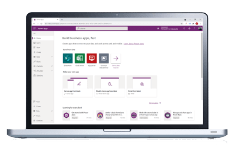Table of contents
- Opening
- Program Management Defined
- 1. Make Your Program Plan
- 2. Use the Right Tools
- 3. Standardize Reporting and Documentation Across the Program
- 4. Build the Right Team
- 5. Develop a Strong Resource Management Plan
- 6. Communicate Effectively and Often
- 7. Expect the Unexpected (or Be Proactive)
- 8. Retain Flexibility
- 9. Ensure Alignment with Strategic Goals
- 10. Keep Project Management Best Practices in Mind
- Successful Program Management, Here You Come!
- Related
Opening
Did you know that by the year 2027, there are projected to be approximately 88 million project management-related jobs available around the world?
While many people are familiar with project managers, not as many people know about program managers or program management. However, these professionals are vital to the success of programs and projects at a larger scale, and they need unique skills to be successful.
Read on to learn more about what program management is and to discover ten tips for taking your program management to the next level. Though different program management and project management are both critical to the success of the organization.

Program Management Defined
A project manager oversees the creation and completion of tasks related to a specific project with a specific, narrow goal. In contrast, a program manager oversees the completion of several (often simultaneous) projects. These projects are all connected to each other, and they tie into the main strategic goals of the company or organization.
While this may sound similar to portfolio management, there is a key difference. Portfolio managers oversee the completion of multiple projects that aren't necessarily connected. A program, by definition, is made of several projects all working toward the same goal. i.e. Program Management.
There is also a difference between a project management office and a program management office. A project management office focuses on the successful execution of multiple project plans. A program management office is concerned with this as well as the alignment of the projects with the overall goals of the organization.
Now that we've defined exactly what a program manager does, let's discuss ten tips for being a successful program manager.
1. Make Your Program Plan
Each project needs to have a thorough, in-depth plan. However, as the program manager, it is your responsibility to keep an eye on the ways that the projects fit together from a big picture standpoint, including any interdependencies that show up between projects.
It is your job to create an overall program plan in addition to the specific project plans created by your project managers. This will give you a snapshot view of how the program as a whole is progressing.
2. Use the Right Tools
Creating a successful program plan starts with implementing the proper tools. Many program management solutions exist to help you with this.
You'll need software that allows you to look at the program plan as a whole, as well as at specific tasks within a project. It's also helpful to use software that allows you to communicate with your collaborators and assign tasks directly in the software. These features decrease the time it takes for you to organize your work and allow for more efficient collaboration.
The Microsoft Suite of applications is one such incredible resource. If using these robust tools sounds daunting, know that there are many training resources available to help you get the most out of your program management software.

3. Standardize Reporting and Documentation Across the Program
Work smarter, not harder. Help yourself and your team by making sure that everyone is following the same processes for documentation and reporting of their tasks and project progress. This will make it easier for you to see how things are progressing day to day and will improve your team's ability to communicate with one another.
4. Build the Right Team
All great work is done by great project teams. Even if you don't have hiring power over the people working with you, you can do your part to help them by setting clear expectations, making sure everyone feels heard and valued, and communicating how each individual's contributions affect are crucial to the successful completion of the program plan.
5. Develop a Strong Resource Management Plan
Accurately assessing your team's capacity is crucial to the success of your program. Make sure your project managers have the resources available to them to successfully complete their tasks, and be prepared to reallocate resources across projects as needed.
6. Communicate Effectively and Often
Communicate with your project leads and their teams. Communicate with your organization's leaders both to gain their support for the program and to share updates on the progress of the program overall.
If your team is struggling, lean in to figure out where the setback is occurring and do what you can to remove the obstacle. Take the time to make sure your team knows how they fit into the whole program and how their work is contributing to the overall goal and thus, program management.
7. Expect the Unexpected (or Be Proactive)
This skill will come with time, but a hallmark of any successful program manager is their ability to accurately predict and manage risks. These risks may be similar to those that arise on a specific project, such as going over budget or tasks running late, but they may also occur on a larger scale.

Being aware of the possibility for these things to happen ahead of time will help you to deal with them when they arise.
8. Retain Flexibility
As mentioned above, being able to anticipate conflicts or obstacles does not mean that you will be able to prevent all of them from occurring.
Assume that at least one thing in your program will not go according to plan. A task may fall behind schedule, or one of your projects may unexpectedly go over budget. Since all of your projects are reliant on each other in some way, even small setbacks can produce large consequences to your program if you don't build in the time and resources needed to address and resolve them.
Additionally, if one project is ahead of schedule or under budget, you have the ability to redistribute those resources to an area of the program in need of more resources and support.
9. Ensure Alignment with Strategic Goals
One of the hallmarks of a program (as opposed to a collection of projects) is that the interconnected projects are directly related to your organization's main strategic goals and priorities.
This is what sets you apart from a project manager. While the project manager is responsible for making sure their project is completed on time, within budget, and to the satisfaction of all the stakeholders and their business objectives, you as a program manager are responsible for all of this and for making sure that the program fits with your organization's overall strategy.
This means that you may have to prioritize certain aspects of the program over other aspects or that you may need to reallocate resources to achieve the critical tasks and goals in the program.
While being flexible, remember what your strategic objectives are and that they may differ from an individual project manager's goals for true benefit realization. You make choices based on the overall health and needs of the program, not an individual project manager's needs or obstacles.

10. Keep Project Management Best Practices in Mind
Chances are, if you're a program manager, you've also done project management in the past. All the same best practices from project management and a project managers work still apply to your work as a program manager.
Continue to follow the same project life cycle you always have: initiate, plan, execute, monitor and control, close. You still have to communicate often with your stakeholders, manage risks, and lead with your ethics for long term success.
These basics lay the foundation for all successful work you'll do as a program manager. You just have to utilize them on a large scale. And for ensuring that you know everything you need to know to be a successful program manager, you can even earn a certification in Program Management.
Successful Program Management, Here You Come!
With the ten tips listed above, you're well on your way to becoming a successful program manager.
Looking for support on your program management journey? Contact us today to learn more about how you can use your Microsoft application to fill your needs!















